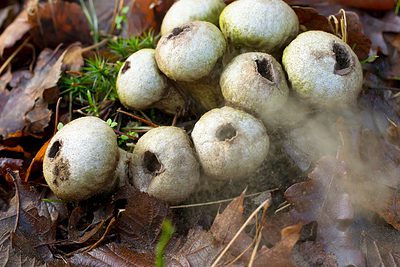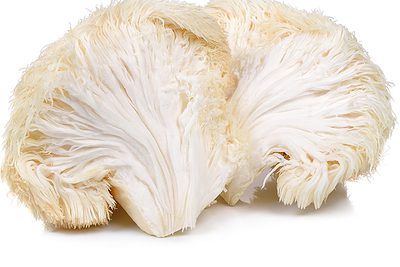What about the health benefits that we as humans are able to reap from mushrooms? Are there medicinal mushrooms for dogs? What are they and how can they help our canine companions?
Since it is said that dog is “man’s best friend,” it makes sense to provide care for them that’s worthy of a best buddy.
Medicinal Mushrooms for Dogs-A Closer Look at What You Need to Know
What Are Medicinal Mushrooms?
There are many different species of mushrooms, from button mushrooms that you find most commonly in the grocery store, to morels that are foraged in the wild, to cordyceps mushrooms, found on the larvae of caterpillars in Japan.
Ancient medicine combined with recent clinical trials is showing that mushrooms have many health benefits.
Reishi mushrooms, for instance, may help fight cancer, support the immune system, and more. Therefore, organic Reishi mushroom powder is a powerful addition to a human’s daily routine, stirred into tea or smoothies.
Another example is Golden Oyster mushrooms, which are anti-inflammatory, anti-oxidant, and anti-bacterial, to name a few benefits. Other mushrooms have brain-boosting benefits.
So what does this mean for your four-legged friend?
Like This Article? Pin it on Pinterest

Medicinal Mushrooms for Dogs
If mushrooms are beneficial to us, it makes sense that the same benefits could potentially exist for dogs. In fact, the indications of health in humans are being extrapolated to dogs, with mushrooms most commonly used to boost an animal’s immune system.
The nutritional value of mushrooms is ideal in prevention, protection and intervention. In other words, to help prevent disease, regenerate and protect cells and intervene as a treatment for disease.
Here are some of the most common medicinal mushrooms for dogs.
Reishi Mushrooms
This brain-boosting mushroom is also great for enhancing the overall health of your dog. Reishi mushrooms are used to help improve liver and immune system function in dogs, enhance heart health and improve endurance.
Cordyceps Mushrooms
This unique mushroom – the one found on caterpillars – is often used to help treat dogs with kennel cough. That’s because it has a dilating effect on the airways of the lungs, and serves as a cough suppressant.
Cordyceps also have antifungal and antibacterial properties, helpful in boosting the overall health of your dog.
Turkey Tail Mushrooms
So named because they resemble the tail of a turkey, these mushrooms activate the immune system and help fight off infection and disease.
The Veterinary School at the University of Penn State conducted a recent study on a common cancer suffered by dogs, known as hemangiosarcoma. They found that dogs treated with a derivative of turkey tail mushroom had “the longest survival times ever reported for dogs with the disease.”
Turkey tail mushrooms also help treat inflammation of the digestive tract and urinary tract.
A recommended product found on Amazon is Canine Matrix Organic Mushroom Powder Supplement for Dogs and Cats (also good for our feline friends as you can see). It has all the good makings of an ideal addition your dog’s diet considering it is organic, vegan, non-GMO, gluten-free, kosher and paleo-friendly.
Since the dosage form is a powder, it can be easily added to any meal of the day, just sprinkle into their food and enjoy the benefits of these blend that is designed to promote immunity, anxiety relief, healthy skin, coat, digestion, and joints.
How To Feed Medicinal Mushrooms To Your Dog
It’s easy enough to feed medicinal mushrooms to your dog if you purchase them in a dried state and mix the powder into their food. Be sure to follow the instructions on the label to ensure the correct dose. The average does for humans is based on a 150-pound person, so adjust the amount based on your dog’s weight.
For picky eaters, a more convenient way most people find to administer a good dose of medicinal mushrooms to their pets are through “treats.” Zesty Paws Organic Mushroom Chewable Treats for Dogs has gotten some great reviews and the beauty here is that it is made up of blend of 14 organic mushrooms and has an easy-to-dose guide depending on the weight of your furry friend.
Your dog will be able to reap all the great benefits that comes from mushrooms including digestive support, hips & joints relief, immune support and assists with energy and cognition.
If you want to feed your dog whole mushrooms, it’s best to completely cook them first, making it easier for your dog to digest. You can then mix the cooked mushrooms into their food.
You can also start with a small amount and increase the dose, so your dog and her digestive system can get used to this new addition to her diet.
Final Thoughts
Mushrooms are a powerful and healthy addition to the diet and daily health routine for humans.
For “man’s best friend,” medicinal mushrooms can also provide a boost to health, offering similar benefits to our four-legged friends as we enjoy.






